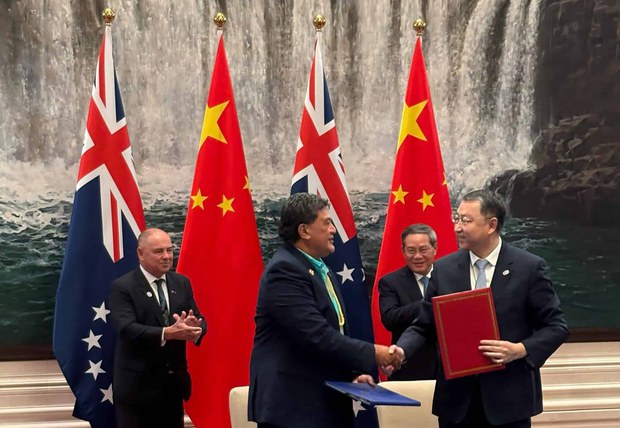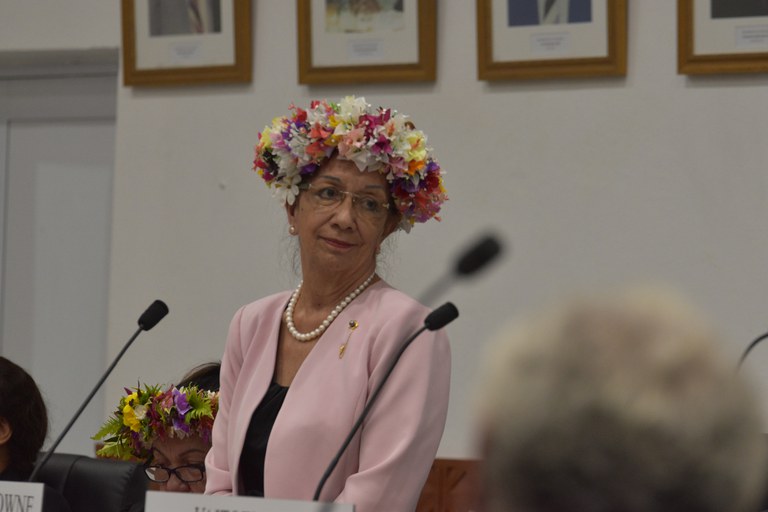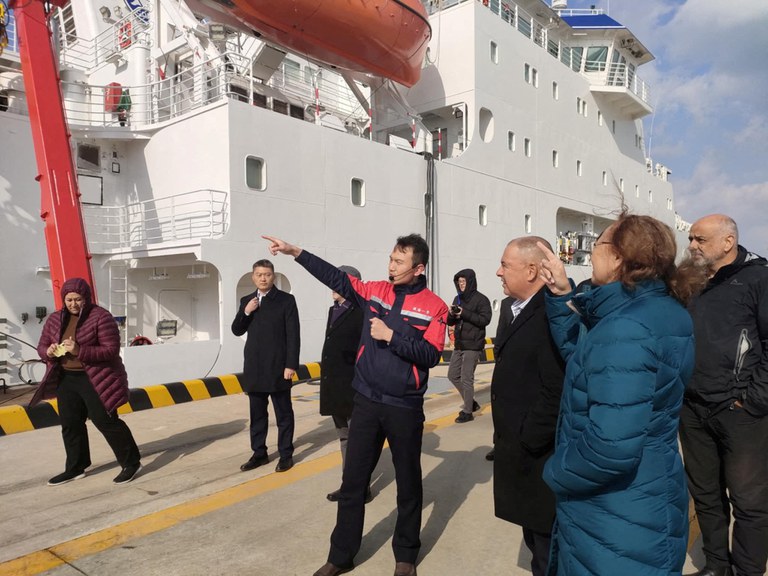Cook Islands PM faces no-confidence vote after contentious China deals
2025.02.25
Sydney
 Cook Islands’ Prime Minister Mark Brown (left) and Associate Minister of Foreign Affairs and Immigration Tukaka Ama (center left) meet with Premier of the People’s Republic of China Li Qiang (centre right) and Minister of Natural Resources Guan Zhiou (right) to sign the Action Plan for the Comprehensive Strategic Partnership on Feb. 13, 2025.
Cook Islands’ Prime Minister Mark Brown (left) and Associate Minister of Foreign Affairs and Immigration Tukaka Ama (center left) meet with Premier of the People’s Republic of China Li Qiang (centre right) and Minister of Natural Resources Guan Zhiou (right) to sign the Action Plan for the Comprehensive Strategic Partnership on Feb. 13, 2025.
UPDATED at 01:10 a.m. ET on 2025-02-26
Political uncertainty is looming for the Cook Islands as Prime Minister Mark Brown faces a no-confidence vote following a series of recent agreements signed with China.
The vote is scheduled in the 25-member parliament on Tuesday local time, bringing to a head mounting frustration with what the opposition says is a lack of transparency on the deals and a proposal for a separate Cook Islands passport.
The Cook Islands, home to some 17,000 people, is a self-governing state in “free association” with New Zealand, which provides budgetary support and is responsible for defending its people, who are New Zealand citizens.
Tina Browne, from the Cook Islands Democratic Party, said the opposition needed four additional votes to get the motion across the line.
“I’m not happy with the way that our government has gone ahead and forged a relationship with China with no consultation, no transparency,” the opposition leader told BenarNews.

The Cook Islands prime minister earlier this month signed a five-year comprehensive strategic partnership with Beijing setting out cooperation in fields spanning critical maritime infrastructure, investment, climate resilience and cultural ties.
On Saturday, the government released details of three more agreements on seabed mineral exploration, maritime industry development, and Chinese development aid worth about NZD$4.6 million.
Browne said it was still unclear whether there was more to come.
“One of the reasons that I am concerned about is that some of the relationships in other Pacific countries with China start off as an economic agreement and then end up being something else,” she said.
“To the extent that a small island is totally reliant on China because of the level of their debt.”
The Cook Islands’ Prime Minister’s Office did not reply to a request for comment.

The prime minister’s weeklong state visit to China, where he met with Premier Li Qiang, sparked a rare diplomatic spat with New Zealand which said it had been kept in the dark about the agreements.
The Cook Islands is required to consult on foreign affairs and defense matters with Wellington, though Brown has disputed the extent to which this is necessary. New Zealand Foreign Minister Winston Peters has since called for a “reset” in relations.
New Zealand, Australia and the United States have watched with concern as China has in recent years become an important development partner for many economically lagging Pacific Islands nations.
After returning home, Brown said the agreements did not replace “longstanding relationships with New Zealand and our various other bilateral, regional and multilateral partners.”
Certain elements of the agreements, including provisions to increase investment in wharves, shipbuilding and deep sea fishing bases, have caught the eye of analysts in the Pacific.
Tess Newton Cain, principal consultant at Sustineo and adjunct associate professor at the Griffith Asia Institute, said there could be regional security implications if the Chinese Coast Guard, for example, were to begin using Cook Islands ports to replenish and repair vessels.
“Obviously people do get very concerned about what they call dual use in these situations,” she said.
“But the key issue is what does this mean for the people of Cook Islands? If it means they are better able to patrol their EEZ and protect their fisheries, then they may see that as a benefit when it comes to security.”
As a high-income country, the Cook Islands would not be as susceptible to wracking up unsustainable debt to China like some other Pacific nations, Cain said.
“But certainly everyone should be aware and keep a close eye on how much debt Pacific Island countries are taking on, particularly those that are vulnerable to natural disasters,” she said.
The memorandum of understanding on seabed minerals committed China and the Cook Islands to “exploration and development of deep sea mineral resources,” but stopped short of exploitation.
Still, Browne said that the agreement suggested things were being “fast-tracked.”
“The Cook Islands position as far as deep sea mining is that it is only in the exploration stage,” she said. “We will take the next step once science tells us that it’s environmentally safe.”
The Cook Islands government in 2022 issued five-year exploration licenses to three seabed mining companies, although it hasn’t announced if or when mining could start.
The potato-sized poly-metallic nodules that carpet swathes of the seabed are touted as a potential source of metals needed for green technologies, such as electric vehicle batteries, as the world tries to reduce reliance on fossil fuels.
UPDATE: Cook Islands Prime Minister Mark Brown survived the vote of no-confidence 13-9 in the 25 member parliament on Feb. 25, 2025.







